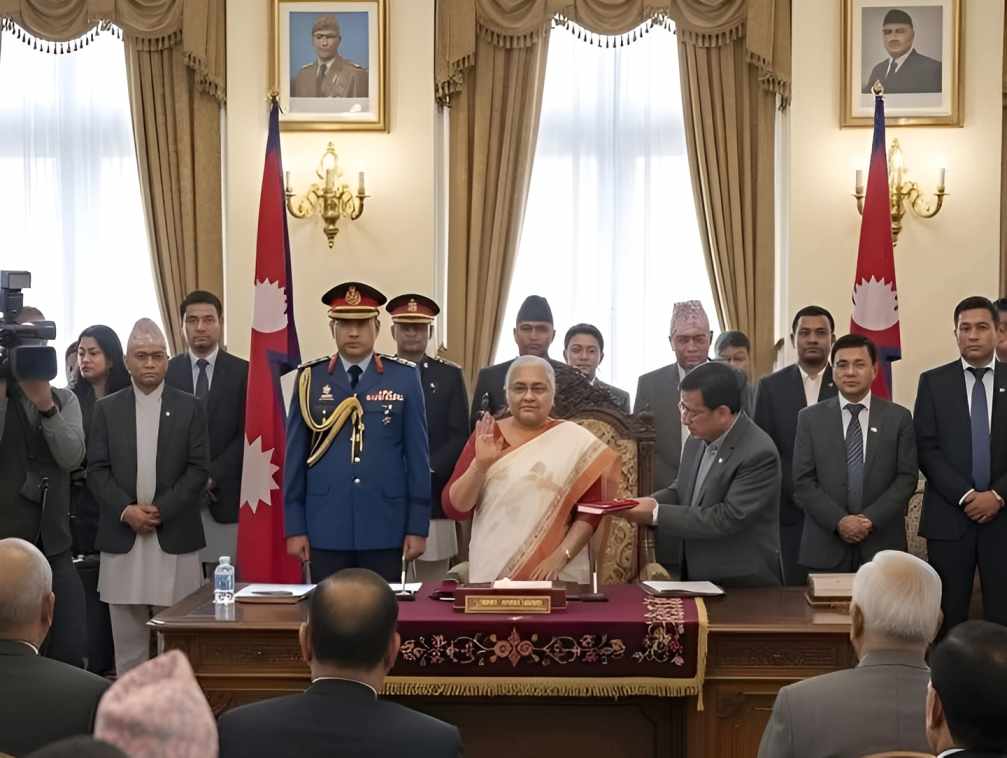Nepal has appointed its first female prime minister, former Supreme Court chief justice Sushila Karki, after violent protests over corruption and a social media ban forced the resignation of KP Sharma Oli.
The 73-year-old was sworn in on Friday evening during a brief ceremony following an agreement between President Ram Chandra Poudel and protest leaders.
The deal came after a week of deadly clashes that left more than 50 people dead.
Demonstrations erupted after the government banned 26 social media platforms, including WhatsApp, Instagram and Facebook.
Though the ban was lifted on Monday, anger had already escalated, with crowds torching parliament and other government buildings in Kathmandu on Tuesday, prompting Oli to step down.
The president’s press adviser told the BBC earlier on Friday that Karki would take the oath later in the day. Legal experts were part of the negotiations that led to the compromise, which also dissolved parliament and set new elections for 5 March next year.
Karki is expected to unveil her cabinet in the coming days.
Seen as a leader with a clean record, Karki has received strong backing from Gen Z protest leaders who pressed for her to head the interim government.
Her administration faces urgent challenges, including restoring security, rebuilding institutions damaged during the unrest, prosecuting those responsible for violence, and assuring citizens that democracy and the constitution will remain intact.
Her appointment followed mediation led by Nepal’s army chief, who brokered talks that eventually delivered a deal. Jubilant Gen Z supporters have celebrated on social media, describing her leadership as a step toward the political transformation they have been demanding.
On Tuesday, Karki personally visited the protest site in Kathmandu where 19 demonstrators had been killed in clashes the previous day. She also met injured protesters being treated in hospital, a gesture that drew praise from young activists.
Karki comes from a family with ties to the influential Koirala dynasty of the Nepali Congress party. She later married Durga Subedi, who was also a leader in the party. She has acknowledged her husband’s role in supporting her rise from a lawyer to becoming Nepal’s chief justice in 2016.
Despite her reputation, Karki’s career has not been without controversy. She once faced an impeachment attempt during her short tenure as chief justice, which lasted just under 11 months.
Nepal remains tense, with the army patrolling Kathmandu as the country recovers from its worst political unrest in decades. Movement restrictions remain in place, though they were briefly eased to allow residents to buy food and essentials.
The protests had originally been sparked by the social media ban, but quickly grew into a broader movement against political elites.
In recent weeks, online campaigns like the “nepo kid” trend, which exposed the extravagant lifestyles of politicians’ children alongside corruption claims, had already inflamed public frustration. By the time the ban was reversed, momentum on the streets had become unstoppable.

